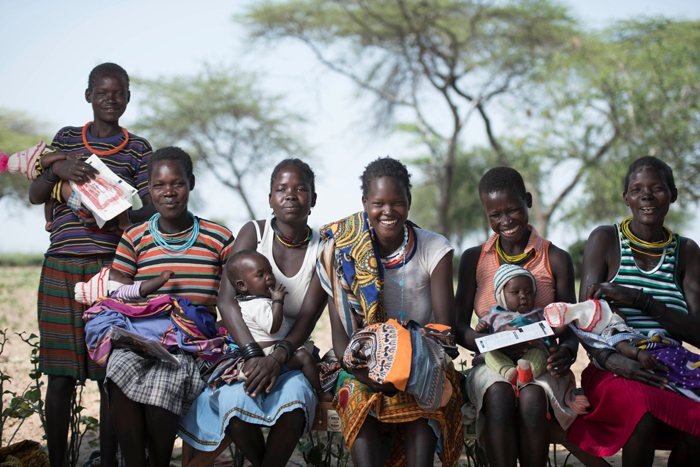News
Is more Aid to Karamoja perpetuating poverty and ill health?

Karimajong women take their children for immunisation
About five years ago, Masudi Kajumba, through an NGO called FairPen Uganda Foundation made frequent trips to Abim, Nakapiripirit, Kotido and Moroto districts, four of the eight districts of Karamoja to carry out activities that aimed at instilling confidence and assertiveness among school children to demand accountability from leaders.
Besides the exciting schedule of the programme that revolved around encouraging the children to report about events in their schools and communities, Kajumba’s work was made almost impossible by what he describes as a culture of dependence and corruption.
“You cannot do anything in Karamoja if you don’t bribe leaders. There is an unwritten code that in order to introduce a project, however good it may sound, you have to ensure it is approved by the leaders and this usually involves having to part with money, lest they will block it,” recalls Kajumba.
“There is a sense among leaders and almost everybody that if you don’t give them, someone else will give them,” added Kajumba.
The announcement this week by the World Food Programme and UNICEF that it was investing US$36 million (Approximately UGX135bn) in a three and half year programme on improving nutrition in Karamoja comes with a sense of deja vu.
The latest Karamoja Nutrition Programme, supported by the UK government through its Department for International Development (DFID) and the German Cooperation (GIZ), targets improving the health of the people of Karamoja through improving nutrition.
The new scheme targets building the capacity of health workers to treat malnutrition, local leaders to effectively monitor and coordinate nutrition programmes across all Government departments and partners.
It all sounds fine. But as Kajumba’s testimony reveals, so many of similar programmes worth billions of shillings have been launched in Karamoja with very little or no impact at all.
As the WFP country director El Khirdir Daloum remarked during the launch of the nutrition programme in Kotido, Karamoja remains the region with the highest levels of global acute malnutrition at (above 10 per cent).
Daloum lamented that: “Over the last five years, despite the delivery of high impact nutrition services at facility and community levels, the rate of child stunting in Karamoja at 35.2 percent – is unacceptable.
Indeed, Karamoja has been awash with aid for decades, but nearly all its social development indicators are some of the worst in the country.
The Food and Agricultural Organisation (FAO) through its Farmer Field Schools has perhaps a more promising model for nutrition. The farmer field schools have focused on pooling resources, and sharing knowledge among farmers to improve vegetable production.
WFP itself has had similar interventions aimed at boosting nutrition but with unconvincing outcomes, as Daloum already acknowledged.
In 2012, the Korea International Cooperation Agency (KOICA) made a US$2m contribution (Approximately UGX7.2bn) towards WFP to support its enhanced nutrition and higher household incomes in the Karamoja region.
What then is the problem with Karamoja?
Close observers of the humanitarian efforts in Uganda argue that the problem with Karamoja has been brought about by excessive donor presence, which has created a dependence mindset among the people.
Aminah, not real name, an employee of the Food and Agricultural Organisation (FAO) who has witnessed some of the donor projects in Karamoja argues that failure of some of the projects arises from the nomadic lifestyles of most people in the sub-region.
“Farming projects in Karamoja, have particularly failed because the people come from nomadic backgrounds. There is a serious need for mindset change, before we can begin to see positive results,” argues Aminah.
But Peter Wamboga Mugirya, the Director of Communications at the Science Foundation for Livelihoods and Development, blames Karamoja’s ills on the aid agencies themselves.
He reasons that aid agencies thrive on poverty and destitution of poor communities such as Karamoja.
“I am one of those people who are very pessimistic about Non-Governmental Organisations. For me, NGO stands for Nothing Going On. These agencies thrive on poverty, ill-health of the people. Without these problems, they have no businesses and therefore have no jobs.”
Comments






















